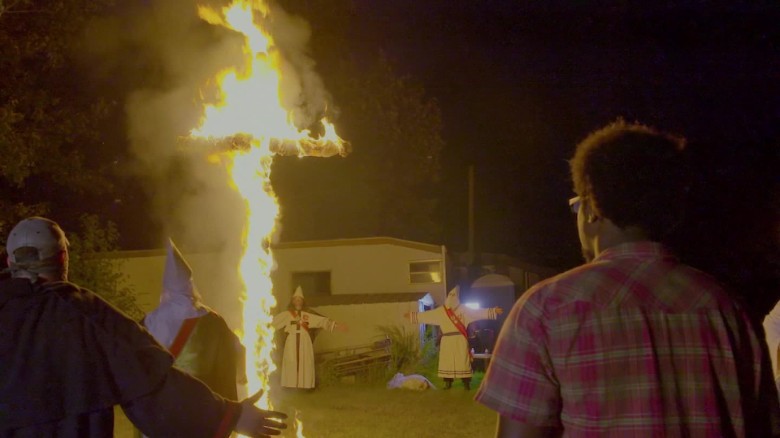A Ku Klux Klan group’s legal battle to pick up highway trash continues after Georgia’s highest court unanimously ruled in the group’s favor Tuesday.
The Georgia Supreme Court dismissed an appeal by the Georgia Department of Transportation. A lower court had ruled the agency violated the Klan group’s free speech rights when it denied its application to participate in an “Adopt-A-Highway” program.
The state suspended the highway cleanup program in 2012, shortly after the controversy broke out.
The case raised important questions about the state’s right to claim immunity and the constitutional guarantee of free speech, Justice Keith Blackwell wrote for the court.
Ultimately, however, the decision rested on jurisdiction, Blackwell wrote. The transportation department filed its appeal incorrectly, leaving the court without the authority to consider its claims.
The International Keystone Knights of the Ku Klux Klan applied to participate in the program in May 2012, seeking to adopt a 1-mile stretch of State Route 515 in Union County. Participation in the program involves picking up garbage in exchange for the right to have the group’s name posted on signs along the stretch of road it has adopted.
The transportation department denied the application on two grounds. First, the agency said it was unsafe to adopt the road because it’s a controlled-access highway with a speed limit of 65 mph.
Its second reason has been the focus of years of legal wrangling:
“The impact of erecting a sign naming an organization which has a long-rooted history of civil disturbance would cause a significant public concern,” Commissioner Keith Golden said in the denial letter (PDF).
Such impacts could include social unrest, driver distraction or interference with traffic flow, he said.
“These potential impacts are such that were the application granted, the goal of the program, to allow civic-minded organizations to participate in public service for the state of Georgia, would not be met.”
The ACLU sued on behalf of the Klan group, claiming the denial of the the application violated the group’s free speech rights.
The state responded with a motion to dismiss, claiming protection under sovereign immunity. The trial court denied the state’s motion in 2014, ruling that sovereign immunity was no bar to claims concerning alleged restriction of constitutional speech, Blackwell wrote in his ruling, recounting the case’s procedural history.
“The trial court found that the evidence shows that the denial of the International Keystone Knights’ application amounted to impermissible viewpoint discrimination,” he wrote.
The transportation department appealed and the court heard arguments in 2015 and 2016. During the 2015 hearing, the court gave a hint of what was to come when one of the judges remarked “we have a hard time figuring out when we have jurisdiction ourselves.”
Much of the 33-page ruling (PDF) explores murky legal considerations such as whether the denial of the application was an administrative decision. In the end, the court decided that yes, it was, and because of that the state should have brought its appeal as an application for discretionary review, Blackwell wrote.
“An appeal from a judgment of that sort must come instead by way of an application for discretionary review. No application was filed in this case, and that leaves us without jurisdiction. For that reason, the appeal is dismissed.”
What happens next is anyone’s guess. The ruling sends the case back to the lower court where it could go to trial if the KKK group presses the issue.
Lawyers for the defendants and the state did not return requests for comment.



